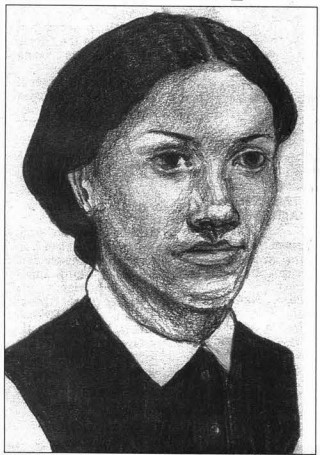1842 - 1865
By: Susan-Sojourna Collier | Date Added:

JULIA C. COLLINS 1842 – November 25, 1865 Julia C. Collins, an African American schoolteacher, and writer, left an indelible mark on literature despite the scant details known about her life. Born around 1842 in the northern United States, Collins' exact birthplace and name remain shrouded in mystery. However, historical records suggest that she may have hailed from Williamsport, Pennsylvania, where she lived and taught. Collins' journey into education and literary pursuits is shrouded in the shadows of history. In April 1864, she was appointed as a schoolteacher for African-American children in Williamsport, a position she likely held with pride and dedication despite the lack of formal educational facilities for African Americans at the time. Collins' commitment to education and literacy was evident in her writings, where she often referenced renowned literary figures and classical works. Little is known about Collins' personal life, but her marriage to Stephen Carlisle Collins, a respected figure in Williamsport, sheds light on her connections within the community. Stephen, a free man born in Pennsylvania, served in the Civil War and later operated a barbershop in Williamsport. Their union was likely a partnership of mutual respect and support, reflective of the higher-status occupations held by African Americans in the 19th century. Tragically, Julia Collins' life was cut short by consumption (tuberculosis) on November 25, 1865. In her final moments, she embraced her faith, becoming a member of the African Methodist Episcopal Church. She left behind "motherless children," believed to be her stepdaughter Sarah and her daughter Annie, whom she raised with love and care. Despite her brief life, Julia C. Collins made a significant impact on literature through her writings in The Christian Recorder, a publication of the African Methodist Episcopal Church. Her most notable work, "The Curse of Caste, or The Slave Bride," was serialized in the Christian Recorder from January to November 1865. The novel, which explores themes of racial identity, interracial marriage, and the injustices of slavery, remains a poignant testament to Collins' literary talent and social consciousness. In addition to her novel, Collins penned six essays for the Christian Recorder between April 1864 and January 1865. These essays, including "Mental Improvement" and "Intelligent Women," served as a platform for Collins to advocate for racial uplift and empowerment within the African-American community. Her words resonated with readers, offering insight and inspiration during a tumultuous period in American history. Julia Collins, an enigmatic figure in literature, inspires me profoundly. Her unwavering dedication to education and literature, despite facing adversity as an African American woman in the 19th century, is truly remarkable. Collins' commitment to uplifting her community through her writing resonates deeply with me, motivating me to amplify marginalized voices in my own work.
click hereShare your thoughts on this story with us. Your comments will not be made public.
Email
Copyright ©2016 - Design By Bureau Blank